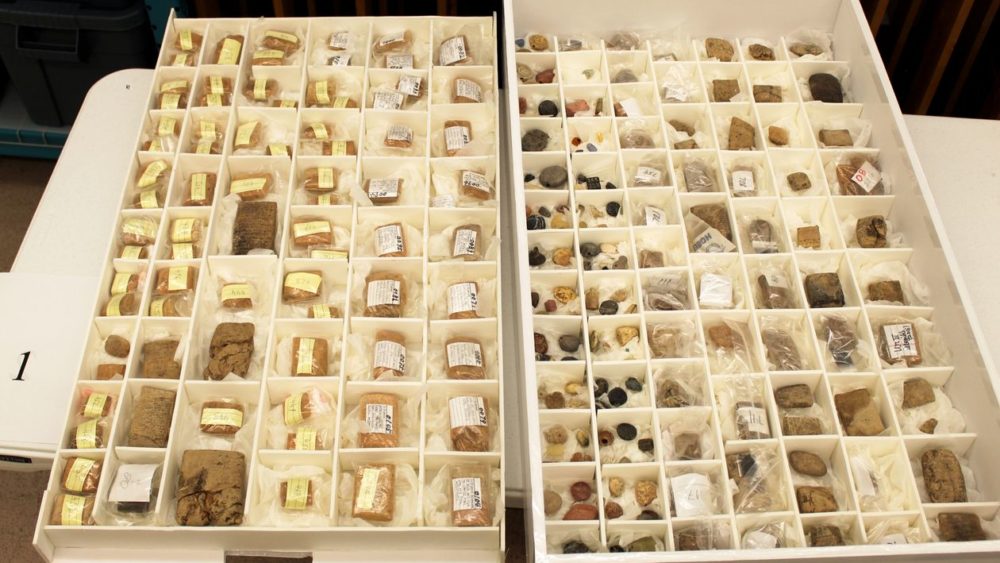Museum of the Bible to return antiquities and admits its Dead Sea Scrolls collection is fake
The Museum of the Bible in Washington DC will repatriate 11,500 antiquities to the Iraqi and Egyptian governments, bowing to criticism from scholars and authorities that they lack reliable histories of ownership or point of origin.
The museum, which opened in 2017, is coordinating the return of about 5,000 ancient papyrus fragments and 6,500 ancient clay objects which could have been previously looted or stolen.
“The criticism of the museum resulting from my mistakes was justified.” – Steve Green
The news follows the bombshell earlier this month that the museum’s much-vaunted Dead Sea Scroll fragments are fake.
In a report this week by the Wall Street Journal, the museum’s founder and chief collector, Steve Green, admitted that he knew little about the world of collecting when he started acquiring biblical era antiquities in 2009.
“One area where I fell short was not appreciating the importance of the provenance of the items I purchased,” Green said, about determining points of origin for antiquities.
Green, an evangelical Christian and billionaire, said he regretted buying pieces from ‘unscrupulous’ dealers early in his antiquities collecting.
He added that “the criticism of the museum resulting from my mistakes was justified.”
The authenticity of the museum’s Dead Sea Scrolls collection – among a cache of Dead Sea Scrolls of unknown origins, which came to market after 2002 – had been questioned for some time. Some experts in 2018 debunked five of the 16 as modern forgeries. The museum already had removed these from display.
Now, after six months of analysis, experts confirmed none of the fragments are authentic.
“After an exhaustive review of all the imaging and scientific analysis results, it is evident that none of the textual fragments in Museum of the Bible’s Dead Sea Scroll collection are authentic,” said the head of the investigation, Colette Loll of Art Fraud Insights, in a statement.
The experts used 3D microscopes, infrared spectroscopy and “energy dispersive X-ray analysis to discover how the fragments were forged – probably from old shoe leather.”
“Each exhibits characteristics that suggest they are deliberate forgeries,” the analysts said in a statement.
To make convincing fakes, researchers estimate the forgers coated the scraps with a “shiny amber material … most likely animal skin glue”.
The scrolls are a set of ancient manuscripts of the Hebrew Bible. The first of the scrolls were found in caves in Qumran on the western shore of the Dead Sea in 1947. They were reportedly discovered by a young Bedouin shepherd searching for lost sheep.
Their discovery is considered to be among the most significant archaeological finds in history. The majority of the scrolls are held in a collection by the Israeli government.
The Museum of the Bible has also installed strict protocols for future acquisitions.
Questions about the provenance of Green’s $US30 million collection of biblical antiquities have plagued the museum for years.
In 2017, Green’s company, Hobby Lobby, returned 5,500 smuggled Iraqi artefacts and paid a $US3 million fine as part of a settlement with the US government. A lawsuit had accused the crafts company of importing the ancient cuneiform tables by claiming they were tile samples.
Almost all of the ancient Egyptian papers being repatriated now are scraps, and some of the clay objects are ‘bullae’, or small round tokens which ancient Sumerian families imprinted with their seals like a signature and attached to legal documents.
Green said the Bible Museum was discussing ways its curators could keep studying the pieces after they are returned to cultural authorities in Iraq and Egypt. He said the rest of the ancient and pre-modern materials in his collection now have been researched to be sure they contain the necessary records – but provenance research continues on everything else.
He said he and the museum have also installed strict protocols for future acquisitions.
Of the pieces being repatriated, only one object – a clay tablet detailing some of the epic poem of Gilgamesh, the Sumerian king – was ever exhibited at the Bible Museum.
Last year, the museum also returned 13 ancient fragments of biblical passages which were allegedly stolen from the Oxyrhynchus collection, an Egyptian papyrus trove owned by the Egypt Exploration Society and stored at the University of Oxford’s Sackler Library.


